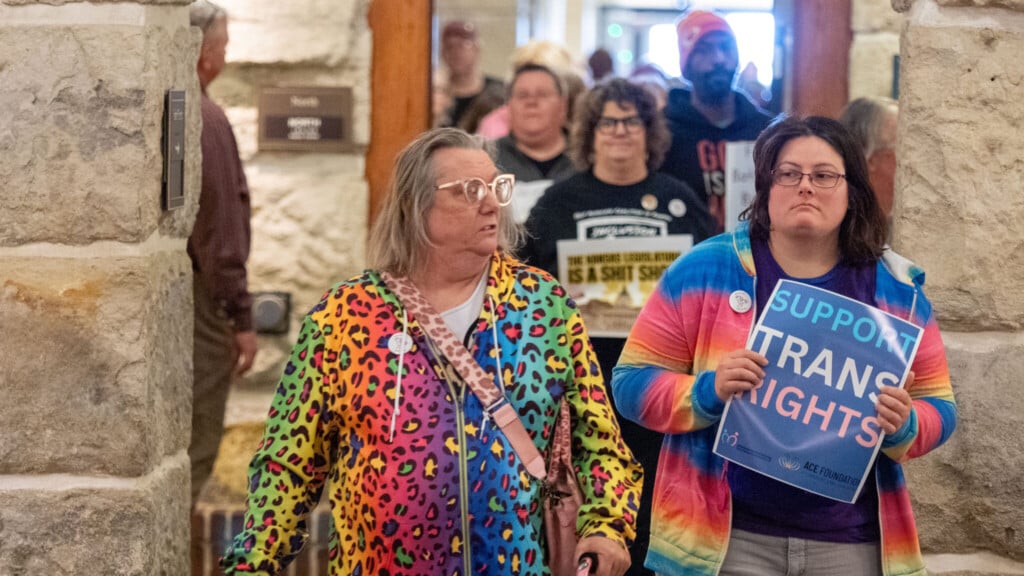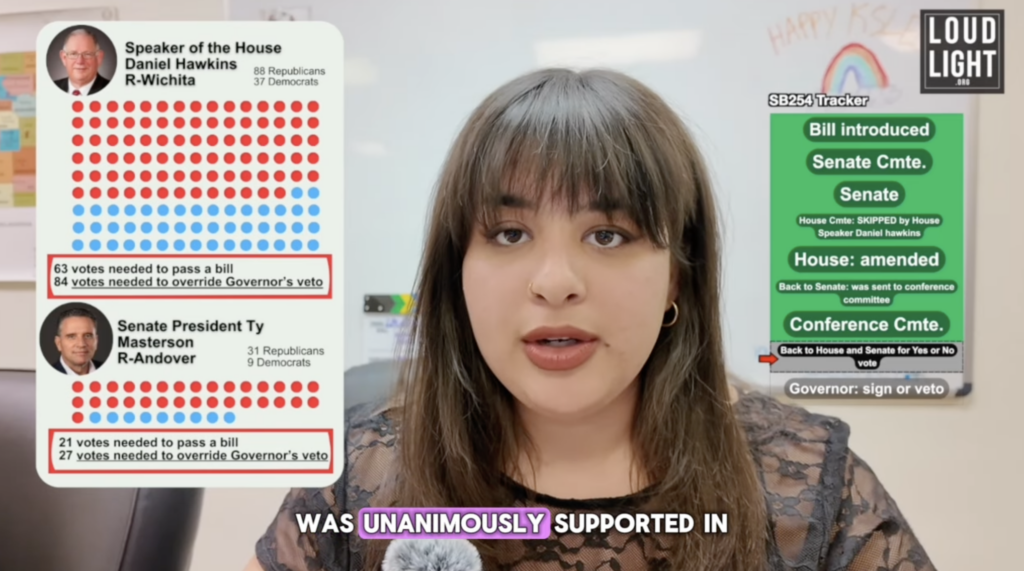Heavy scrutiny of Jackson County property assessments collapses into crisis management
The appeal deadline has been extended through July 31st. So far, over 40,000 appeals have been filed with the assessor’s office.
Property taxes, what’s the deal with those?
Over 40,000 Jackson County property owners had a similar question in mind when they filed appeals on their assessments just ahead of the extended July 31 deadline, with 8,000 of those reportedly resolved less than a week out.
When appraisals started hitting mailboxes this spring, many were shocked to find increases they found unreasonable. There had been controversy over rate increases before in both 2015 and 2019, but this time, something seemed particularly amiss.
“For the last two decades, really, there has been hyper deflated taxation, so it was just never really increased appropriately,” Jackson County Legislator Manny Abarca IV says. “So, through inaction it basically created a cheaper way for development to occur in Kansas City. It kind of stimulates the retail market. You’re creating more opportunity for folks and providing tax relief, because you’re not really taxing them.”
Gail McCann Beatty, a former Missouri House Minority Leader, has served as the Director of Assessments for Jackson County since 2019. From the start, she has said that she expected rates to average out to a 30% increase, this being due to the fact that they will reflect Fair Market Valuations (FMV) for the first time in several years.
The county conducted its latest set of reassessments via a $17.9 million partnership with Tyler Technologies, announced in 2021, to use its systems for a countywide overhaul in valuations. The old “legacy” system was in place for over 20 years.
So, while neither McCann Beatty nor her staff should explicitly be blamed for the rapid increase many saw, it’s clear that a dogpile of bureaucratic interests has accumulated over the years and encouraged a county infrastructure that has failed to act in a timely manner.
“To do that in one tax year—which is two years for us—is pretty inhumane, in my opinion, because you’re not giving folks an opportunity who have not really even realized the level of benefit they’ve been receiving through lack of appropriate taxation,” Abarca says. “So you’re going to leave a lot of people in a lurch because they’re not prepared for their increases.”
In response to protests, at least one lawsuit, and an investigation by the Independence city council, McCann Beatty called a press conference for July 20 to “combat misinformation”. A week earlier, the department seemingly launched a whole-ass website for the same reason.
The site, www.jacoassessmentfacts.com—led with by a grainy-looking Jackson County logo masthead—is questionable at best.
Click on “Get Help” and you’ll be redirected to a stock image of people at desks. Scroll to the bottom of the page and click on “Website Disclaimer” and you’ll be redirected to a page that says the page you’re looking for is nowhere to be found.
“We’re still asking questions about where that money came from,” Abarca, 35, says. “It’s a truly third-party site. I think we see that this is crisis communications management. This is not truly meant to be a helpful site for clarity, because otherwise they’d be clarifying all kinds of issues,” Abarca says.
Website or not, McCann Beatty and her team say they will process all appeals submitted by July 31st, no matter how long that process ultimately takes. The original deadline, July 10, was extended by the Board of Equalization in order to meet demand.
As that crucial date approaches, assessment offices will be open from 10 a.m. to 3 p.m. on Saturday, July 29th with staff on hand. At present, these taxes are due December 31.
The fallout from such taxes, as they are currently assessed, encompasses a large impact on many communities, especially the retired and/or elderly.
“Say you’re a senior, and you’ve paid off your home, and you’re used to paying this tax that has maybe been a couple hundred bucks. Now, you get hit with a $2,000 bill, and you’re so scared. There is no option for you. Your alternative is to go get another job. You go get another job, but then you offset your income and you may lose your social security,” Abarca says.
County Executive Frank White, as well as McCann Beatty and her team, have stressed that a portion of these increases also reflect local tax levies for education and other regional taxing authorities like fire and water districts, libraries, cities, counties, junior colleges, and other special funds like mental health services.
“We cannot not fund schools. Seniors need to be able to stay where they’re at. We can do both. We don’t have to pick one or the other,” Abarca says.
For her part, McCann Beatty, 57, also claims the department is understaffed, leading to difficulties with the assessor call center, which had seen enough traffic to warrant its. recent expansion.
McCann Beatty said on July 5 that she expected about ten percent of homeowners to appeal their numbers. The current figure, as stated, hovers closer to 13 percent at the time this story was published.
Where does the county go from here? Aside from continuing to facilitate this lofty appeals process, Abarca has introduced legislation to hold Tyler Technologies accountable, and another to cap the rates at 15%. Tyler Technologies is fighting this as well as the aforementioned lawsuit.
As for the latter idea, the flat rate, McCann Beatty herself has said multiple times that this isn’t possible within the state statute, and that a uniform appreciation rate would hurt certain neighborhoods more than others.
Abarca, of course, disagrees.
“The Board of Equalization has the authority, as does county executive [White], to throw out this assessment completely and say these are too many issues here. Let’s just create an arbitrary rate of increase and move on. They can do that. That’s within their authority. It says within the charter that they have the ability,” Abarca says.
In the July 20 press conference, from behind a sectioned-off stairway at the top of the steps of 1300 Washington, where appeals are being processed, McCann Beatty was asked if the nearly 40,000 appeals were an accurate reflection of how many were truly inaccurate assessments.
“I think it’s less than that. We’ve had people even ask us to increase property value. And again there are a lot of people filing because they just got misinformation, and they’re doing that out of caution—and we encourage that,” McCann Beatty said.
McCann Beatty says the process, so far, is working based on the speed at which her department has already processed those 8,000 or so appeals as compared to the last time property taxes were collected in the county.
She notes that this is in part because 2023 is “the first time we’ve been able to do in-person, informal [appeals] since I’ve been here. And probably several years before, because we just don’t have the space in either courthouse to do that.”
Many Jackson County residents are still skeptical, and while the rate at which appeals have been addressed thus far may be greater than it once was, the total number filed far exceeds those same precedents.
“We’ve been told an average but without seeing the data. I can’t validate that it’s true or false,” Abarca says.
The only way to stand a chance, it seems, is to get one’s appeal in before the July 31 deadline. Those that need help can use the call center, though it should be noted that appeals themselves cannot be filed over the phone.
“They will be able to file their appeals online. If they don’t have an email address, they’ll get their notice via regular mail. Or they can come in on the 29th of July and we will be here 10 a.m. to 3 p.m,” McCann Beatty says.
—Click here to file an appeal.
—This link will take you to a Jackson County system which will help compare your rates against regional, statewide, and national averages for the same value.
—Jackson County’s official real estate property tax hub.
Gail McCann Beatty’s YouTube tutorial on how to appeal:








